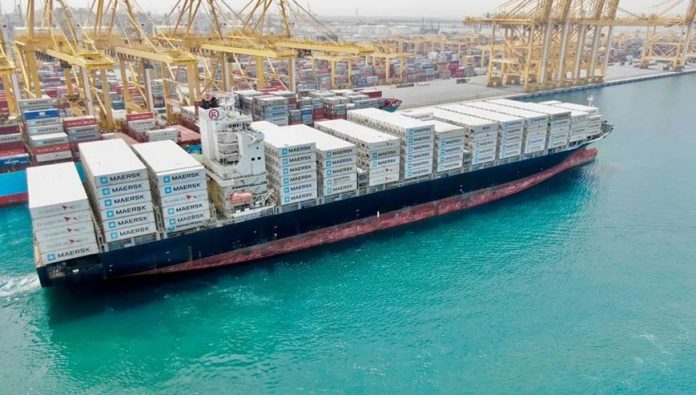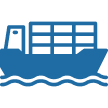Confidence in the ocean supply chain is low and for the movement of vaccines by sea there will need to be an improvement in the reliability and visibility of the logistics system.

Speaking at the Containing Covid-19 conference, jointly organised by Container News and Cool Logistics, Michael Culme-Seymour, Consultant, World Economic Forum (WEF) and VP & managing director APAC, Roambee, believes that as Covax and UNICEF are rolling out millions of doses of vaccine, and while they are doing a great job, they are still only reaching between 0.5-3% of the populations of many countries.
That means for many parts of the world, such as Asia, seafreight has an opportunity and with 65% of the world’s vaccines produced in India the transit is just 10 days to southeast Asia, there is a real possibility of using ocean supply chains, the technology is there the equipment is there some ports are already up to speed while others will need to be looked if there is to be an integrated system of delivery.
According to Culme-Seymour, it is down to the carriers to “persuade the pharmaceutical companies to shift over,” to seafreight. As long as there is money for airfreight the vaccines will go by air, but the target for the vaccine role out is to reduce the cost to single dollars, anything from US$3-5 per dose, so if you add the cost of freight the price rises significantly.
He said it is important to develop single lanes, for example from India to Singapore, where the port organisation and logistics services are suitable then ocean freight can prove that the supply chain can work, then “people will start to gain confidence”.
“Of course what we see in the public eye is the Suez Canal [the Ever Given grounding] the delays in Los Angeles where you wait eight weeks to get your container offloaded causes lack of confidence,” noted Culme-Seymour.
It was tough to hear for Hristo Petkov, AP Moller-Maersk’s global head of pharmaceuticals, who conceded that “Global on-time delivery and performance right now it’s not great and it’s nothing that we’re proud of as a company.” However, Petkov is convinced that within the next two to three years the company will be able to meet future challenges.
In addition, Petkov said that Maersk must prioritise the distribution of the vaccines because there is a humanitarian angle that the company needs to be aware of. The Danish carrier is also determined that the delivery of vaccines will be made using expensive reefer containers that will travel inland and be tied up for long periods as a result.
However, Petkov also emphasised the need for partnerships with industry stakeholders to make the ocean supply chain work.
 Hotline: 0944 284 082
Hotline: 0944 284 082
 Email:
Email: 


 VN
VN